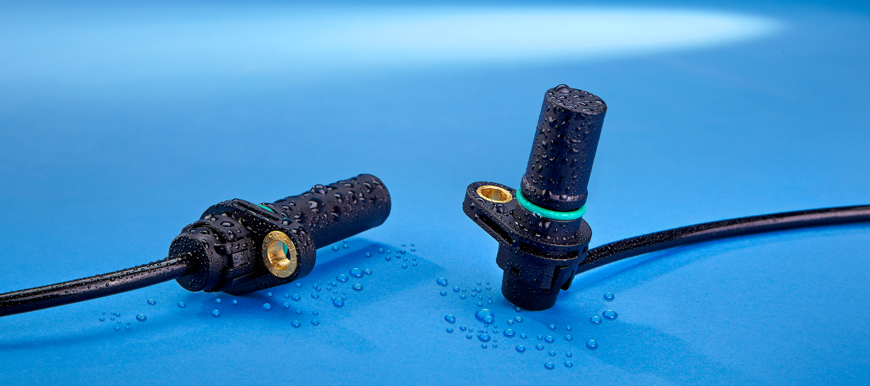IP69K: FQ Rotational speed sensors - New series of plastic sensors

Thanks to different sensor lengths, cable outlet directions and connector options, this product line offers users a high degree of flexibility, enabling adaptation to entirely individual requirements. And even if none of the available models is suitable, RHEINTACHO will be pleased to draw on its recognised expertise in customised solutions to develop the right solution for you.
Why IP69K? RHEINTACHO Sales Manager Wolfgang Sexauer: "There are two main reasons why we were motivated to develop this new series. Firstly, we see a tendency to specify higher IP classes in many applications for safety reasons, than was the case a few years ago. Secondly, the IP69K protection class enables technical potentials to be realised even more efficiently today. This applies to both available materials and, of course, to intelligent constructions."
The FQ product line is consequently a further development of the current FK product line, which fulfils protection class IP65. In recent years the FK sensors have developed into a genuine success model. Numerous electromotor applications would be inconceivable without these rotational speed sensors. The basic geometrical data for the RHEINTACHO FK has meanwhile been adopted by significantly larger competitors too.
The electronic design of the FQ product line is successively complemented with different variants in order to fulfil different requirements. In detail: Frequency range, detection distance, EMC and temperature stability. According to the current development plan, all versions will be designed as a two-channel sensor, enabling the detection of rotational speed and direction of rotation.
RHEINTACHO wholeheartedly welcomes higher specifications from users in regard to its sensors. "Our experience has shown that specifying too low an IP class and putting the onus on users via operating or maintenance instructions, is not practical. This simply doesn’t work", continues Wolfgang Sexauer. "When a machine is to be cleaned with a steam jet for practical reasons, it is difficult to convince the operators otherwise – regardless of what is found in the operating manuals. Subsequent problems "in the field" are then inevitable. Whether in consideration of all actual costs a more cost-effective, lower-specified component is then the means of choice is at least doubtful. And just for this reason we are expanding the proven FK product line to include the FQ series with its higher protection class. We always strive to offer the best technical and economic solution, tailored to the specific application."
The press release can be downloaded here:
